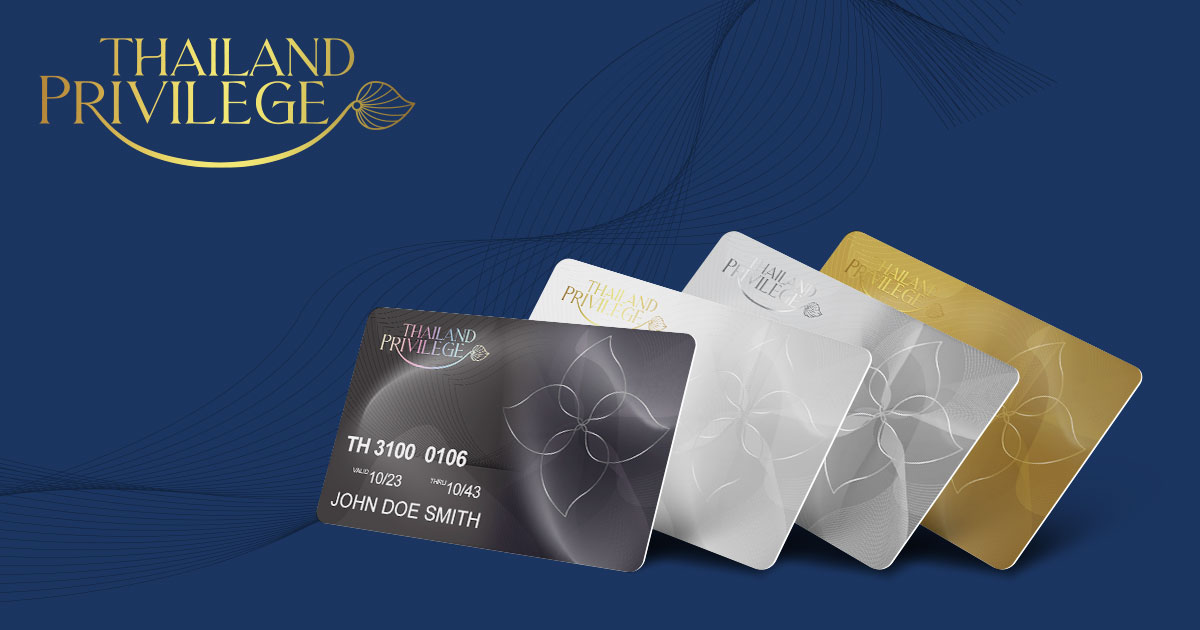Thailand Privilege Visa
The Thailand Privilege Visa, formerly marketed as the Thailand Elite Visa, is a long-term residency program established under Thai law to promote high-value foreign residency. Designed primarily for affluent individuals, investors, retirees, and global professionals, it provides an extended stay visa along with premium concierge services and lifestyle benefits.
The program is operated under the Thailand Privilege Card Co., Ltd. (TPC), a state-owned enterprise under the Ministry of Tourism and Sports. Although the visa is issued pursuant to immigration authority under the Immigration Act B.E. 2522 (1979), it is granted under special Cabinet-endorsed provisions and does not fall into the conventional Non-Immigrant visa categories.
1. Legal and Administrative Framework
1.1 Establishment
The Thailand Privilege Visa is administered by Thailand Privilege Card Co., Ltd., established by a Cabinet Resolution in 2003. It operates as a state enterprise with the mandate of supporting tourism and investment by offering long-stay visas bundled with luxury services.
TPC is authorized to issue Thailand Privilege Cards, which are membership documents entitling holders to apply for a long-term multiple-entry visa, renewable every five years.
1.2 Legal Authority
The visa is issued under the special provision of the Immigration Bureau, based on policy directives from the Ministry of Interior. It does not require the holder to meet financial, age, or employment conditions normally applicable to Non-Immigrant visas (e.g., O-A, B, LTR).
The visa is classified under a multiple-entry Non-Immigrant visa framework, but it is exclusive to TPC members, granted under Section 34 of the Immigration Act and subject to administrative discretion.
2. Membership Structure and Eligibility
Following the 2023 restructuring and rebranding from “Elite Visa” to “Thailand Privilege Visa,” the program introduced four tiers of membership:
2.1 GOLD Membership
-
Visa Validity: 5 years
-
Fee: THB 900,000 (one-time, non-refundable)
-
Eligibility: Individual applicants only (no dependents)
-
Services: Basic VIP airport service, annual health check, contact center access
2.2 PLATINUM Membership
-
Visa Validity: 10 years (2 x 5-year entries)
-
Fee: THB 1.5 million
-
Additional Member Fee: THB 1 million per dependent
-
Services: Enhanced concierge services, airport transfers, lifestyle privileges
2.3 DIAMOND Membership
-
Visa Validity: 15 years (3 x 5-year entries)
-
Fee: THB 2.5 million
-
Additional Member Fee: THB 1.5 million
-
Services: Premium tier services, golf and spa access, event invitations
2.4 RESERVE Membership (Invitation Only)
-
Visa Validity: 20 years
-
Fee: THB 5 million
-
Eligibility: By invitation and background screening only
-
Services: Tailored privileges, private liaison services, and exclusive partnerships
All membership types include a Thailand Privilege Card, and once approved, the visa can be affixed to the passport either at a Royal Thai Embassy or through Thai Immigration within the country.
3. Application Process and Due Diligence
3.1 Initial Application
Applicants must submit:
-
Completed application form
-
Passport copy
-
Photograph
-
Signed membership agreement
-
Proof of payment (after pre-approval)
3.2 Background Checks
Applicants undergo multi-agency vetting, including checks by:
-
Immigration Bureau
-
Royal Thai Police
-
Ministry of Foreign Affairs
-
National Intelligence Agency
These checks assess:
-
Past criminal convictions
-
Immigration history
-
Involvement in blacklisted or sanctioned entities
3.3 Visa Issuance
Upon clearance and payment, applicants receive an approval letter, after which the visa can be issued:
-
At a Thai Embassy/Consulate (outside Thailand)
-
At Thai Immigration Bureau (within Thailand)
Processing time ranges from 4 to 8 weeks, subject to background clearance.
4. Rights and Limitations of the Thailand Privilege Visa
4.1 Residency Rights
Holders are allowed to:
-
Reside in Thailand for the duration of the visa
-
Stay continuously for 1-year periods, renewable by re-entry or extension
-
Enter and exit Thailand multiple times without reentry permits
4.2 No Employment Rights
The visa does not authorize employment. Engaging in any form of work without a valid work permit violates Section 37 of the Immigration Act and can result in:
-
Visa cancellation
-
Deportation
-
Future entry bans
However, some members use the visa to reside in Thailand while working remotely for foreign entities—a gray area not explicitly addressed in law but still potentially problematic.
4.3 Dependent Inclusion
Dependents can be added under PLATINUM and higher tiers. They receive identical visa privileges but no separate work rights.
5. Reporting and Compliance Obligations
5.1 90-Day Reporting
Under Section 37(5) of the Immigration Act, all long-stay visa holders must report their address to Immigration every 90 days.
For Privilege Visa holders:
-
This obligation is delegated to TPC if the member provides passport and arrival details in advance.
-
Failure to comply may result in overstay penalties or visa issues.
5.2 Change of Address or Passport
Members must notify TPC or Thai Immigration of:
-
Change of residence
-
Change of passport
-
Loss or theft of passport
5.3 Cancellation and Revocation
The visa may be revoked if:
-
The holder commits a criminal offense
-
The membership is terminated for breach of terms
-
Immigration finds that the visa was used for unpermitted purposes
In such cases, the visa becomes invalid and the individual may be ordered to leave the Kingdom immediately.
6. Comparison to Other Long-Stay Visas
| Visa Type | Thailand Privilege Visa | Non-Immigrant O | Long-Term Resident (LTR) |
|---|---|---|---|
| Duration | 5–20 years | 1–5 years | 10 years |
| Employment Rights | ❌ No | ❌ No (unless B) | ✅ Yes (specific classes) |
| 90-Day Reporting | ✅ Handled by TPC | ✅ Required | ✅ Required |
| Financial Requirement | THB 900K+ (one-time) | Income proof | Asset/income thresholds |
| Tax Benefits | ❌ None | ❌ None | ✅ In some cases |
The Thailand Privilege Visa offers flexibility, longevity, and lifestyle integration, but lacks pathways to permanent residency, work authorization, or citizenship.
7. Tax Residency and Legal Considerations
7.1 Tax Residency
Visa holders are considered tax residents if they spend more than 180 days per calendar year in Thailand. This triggers:
-
Personal income tax liability
-
Reporting of foreign-sourced income if brought into Thailand in the same year
Thailand does not currently enforce a worldwide wealth tax, but foreign-sourced income becomes taxable if remitted during the same tax year in which it was earned.
7.2 Real Estate Ownership
Privilege Visa holders may:
-
Purchase condominium units (up to 49% foreign quota)
-
Lease land for up to 30 years (renewable)
-
Own buildings on leased land (through superficies)
They are not permitted to own freehold land, unless granted an exception under BOI or Ministry of Interior rules.
8. Termination, Renewal, and Upgrade
8.1 Termination
Members may terminate their membership voluntarily, but the visa becomes invalid immediately. The membership fee is non-refundable.
8.2 Renewal
Memberships nearing expiration may be renewed by:
-
Reapplying for a new tier
-
Paying the applicable fee (subject to approval and background checks)
8.3 Upgrade
Members may upgrade to a higher-tier program (e.g., from GOLD to DIAMOND) by paying the fee difference and undergoing administrative review.
Conclusion
The Thailand Privilege Visa is a state-sanctioned residency instrument designed for high-net-worth individuals seeking convenience, long-term access, and elite services in Thailand. It offers a long stay without complex immigration burdens, but is not a visa for those seeking to work or integrate into the local business ecosystem.
Foreign nationals considering the Privilege Visa must weigh the benefits of long-term residency and concierge services against the limitations on employment, tax exposure, and lack of immigration permanence.
Legal counsel is recommended for applicants with complex tax, business, or immigration profiles, especially if used in conjunction with other residency or investment strategies in Thailand.


